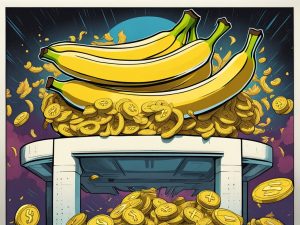Ancient Scrolls of Herculaneum Unveiled with AI and CT Scans
More than 1,800 papyrus scrolls that survived the eruption of Mount Vesuvius 2,000 years ago have finally been accessed by a group of researchers. These scrolls, discovered in the village of Herculaneum in Italy, were previously impossible to unfurl without disintegrating or losing their writing. The winners of the Vesuvius Challenge, a competition to unlock the ancient writings, used artificial intelligence (AI), nondestructive CT scans, and specialized techniques to scan and translate about 5 percent of one scroll.
The Vesuvius Challenge and Its Success
The Vesuvius Challenge was launched ten months ago to solve the problem of the Herculaneum Papyri. The team behind it, led by Nat Friedman, former CEO of Github, announced their success in accessing the scrolls after two millennia. The challenge required expertise in CT scan technology, computer vision, and machine learning to overcome the delicate state of the carbonized scrolls.
A Breakthrough Algorithm and Prize Winners
The winning team, led by Luke Farritor, a University of Nebraska-Lincoln student and SpaceX intern, developed a machine learning algorithm that could discern textual nuances within the sealed scrolls. This feat had previously eluded scholars. Farritor’s neural network successfully differentiated between inked and blank areas of the papyrus, uncovering Greek characters like “porphyras,” meaning “purple.” Youssef Nader, a PhD student, and Julian Schilliger also contributed to the prize-winning effort.
A Glimpse into Ancient Philosophy
The partially deciphered scroll reveals insights into ancient philosophical discourse, particularly the Epicurean belief in pleasure as the highest good. It explores the relationship between the availability of goods and the pleasure they bring, refuting the notion that scarcity enhances pleasure. The scroll presents a preserved glimpse into Greek philosophy from two millennia ago, made possible by AI.
An Open-Source Breakthrough
The work of Nader, Farritor, and Schilliger in the Vesuvius Challenge marks a new era in preserving and interpreting ancient texts. The entire operation was open sourced, paving the way for future advancements in accessing and understanding ancient writings.
Hot Take: Unlocking Ancient Wisdom with AI
The successful use of artificial intelligence and CT scans to unlock the ancient scrolls of Herculaneum is a groundbreaking achievement. This breakthrough not only provides access to lost stories and information but also opens up new possibilities for preserving and interpreting ancient texts. By combining expertise in technology and machine learning, researchers have managed to overcome the challenges posed by delicate, carbonized scrolls. The deciphered scroll offers valuable insights into ancient philosophy and showcases the power of AI in bringing forward knowledge from centuries ago. With further scanning and deciphering efforts underway, we can expect even more remarkable discoveries in the future.


 By
By
 By
By
 By
By


 By
By